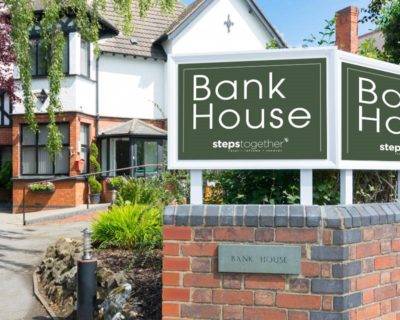
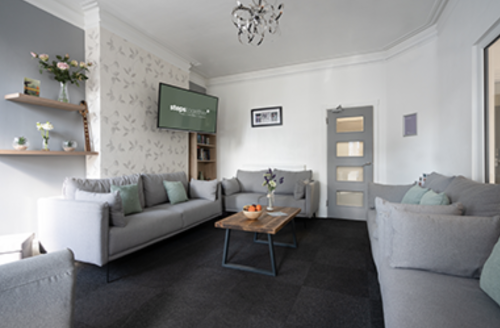
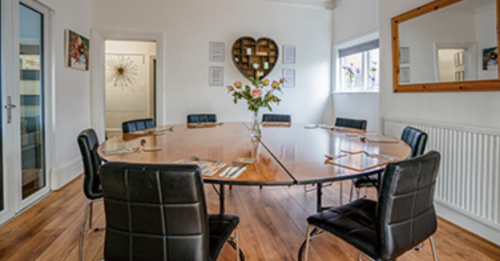



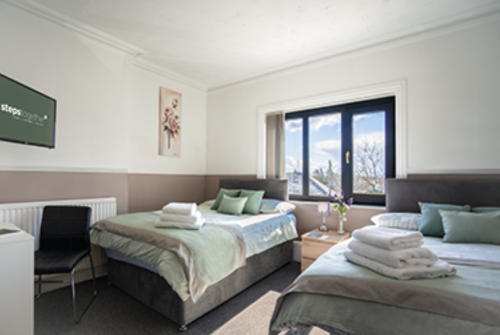
Steps Together Bank House
Treatment Focus
This center primarily treats substance use disorders, helping you stabilize, create relapse-prevention plans, and connect to compassionate support.
Primary Level of Care
Offering intensive care with 24/7 monitoring, residential treatment is typically 30 days and can cover multiple levels of care. Length can range from 14 to 90 days typically.
Claimed
Recovery.com has connected directly with this treatment provider to validate the information in their profile.
Treatment Focus
This center primarily treats substance use disorders, helping you stabilize, create relapse-prevention plans, and connect to compassionate support.
Primary Level of Care
Offering intensive care with 24/7 monitoring, residential treatment is typically 30 days and can cover multiple levels of care. Length can range from 14 to 90 days typically.
Provider's Policy
Call the Healthcare Insurer directly to confirm policy coverage, policy level and your eligibility for treatment.
Steps Together Bank House
Steps Together Bank House
About Steps Together Bank House
Bank House is a detox, residential and outpatient treatment center that is designed to exude warmth, tranquility and remind patients of home in order to put them at ease while receiving treatment. Patients can also feel a sense of community as they enter treatment, since this intimate, home-like setting offers 17 beds. Patients can choose a private room if they are available, otherwise Bank House offers several shared rooms at a discounted rate.
3 Phase Treatment
Bank House is one facility among 5 facilities through Steps Together that offer treatment in various forms for drug and alcohol use disorders. Steps Together operates using a 3 phase approach to treating their patients. The first phase is called Primary Residential and involves clinical detox and extensive therapies while living on-site. Their expert therapists help patients set empowering goals and also help them release guilt and shame related to the disease of addiction. The 2nd phase of treatment is called Second Phase Rehab which allows patients to live semi-independently while still maintaining a structured treatment plan. The 3rd phase is Outpatient care. This phase can include private home detox services, private individual counseling, family intervention services and 12-Step programs. Additionally, Steps Together prioritizes giving their patients all the tools they need to succeed in recovery through their aftercare services. They provide a virtual aftercare group for patients who have graduated from their recovery program and patients are entitled to use this service for up to a year following their recovery. They also offer family education services so that families of patients can learn about addiction and the best ways to support their loved one. Patients who come to Bank House can participate in the 1st, 3rd and aftercare phases of treatment.
Amenities at Bank House
Each room at Bank house a twin or full-size bed, flat screen TVs and wi-fi access. Patients can bring their technological devices such as computers or phones, as they will have designated time slots for work and family/friend communication. Bank House ensures that patients’ dietary accommodations are met.

Center Overview
Treatment Focus
This center primarily treats substance use disorders, helping you stabilize, create relapse-prevention plans, and connect to compassionate support.
Insurance Accepted
Cash Pay Rates
Estimated Cash Pay Rate
Center pricing can vary based on program and length of stay. Contact the center for more information. Recovery.com strives for price transparency so you can make an informed decision.
Meet Your Care Team

Darren Rolfe
Chief Executive & Founder

Steve Jones
Deputy CEO

Cathy Hall
Group Clinical Services Director

Paul Mudie
Group Operations Director

John Wilson
Group Therapy Services Director
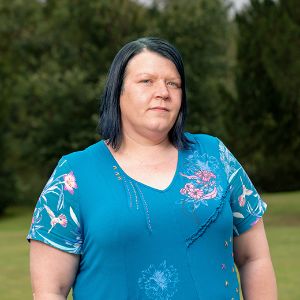
Toni Gregory
Service Manager
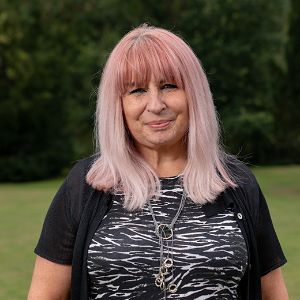
Julie Crosby
Therapy Services Manager
Levels of Care





Your Care Options
Specializations
Alcohol
Using alcohol as a coping mechanism, or drinking excessively throughout the week, signals an alcohol use disorder.
Drug Addiction
Drug addiction is the excessive and repetitive use of substances, despite harmful consequences to a person's life, health, and relationships.
Outpatient
During outpatient rehab, patients attend a structured treatment program while continuing to live at home.
Residential
In a residential rehab program, patients live onsite, with access to daily treatment and 24-hour care. An average stay is 30-90 days.
Who We Treat
Men and Women
Men and women attend treatment for addiction in a co-ed setting, going to therapy groups together to share experiences, struggles, and successes.
Approaches
Holistic
A non-medicinal, wellness-focused approach that aims to align the mind, body, and spirit for deep and lasting healing.
Twelve Step
Incorporating spirituality, community, and responsibility, 12-Step philosophies prioritize the guidance of a Higher Power and a continuation of 12-Step practices.
Therapies
1-on-1 Counseling
Patient and therapist meet 1-on-1 to work through difficult emotions and behavioral challenges in a personal, private setting.
Meditation & Mindfulness
A practiced state of mind that brings patients to the present. It allows them to become fully aware of themselves, their feelings, and the present moment.
Art Therapy
Visual art invites patients to examine the emotions within their work, focusing on the process of creativity and its gentle therapeutic power.
Family Therapy
Family therapy addresses group dynamics within a family system, with a focus on improving communication and interrupting unhealthy relationship patterns.
Motivational Interviewing
Based on the idea that motivation to change comes from within, providers use a conversational framework to discover personalized methods for change.
Music Therapy
Singing, performing, and even listening to music can be therapeutic. Music therapy sessions are facilitated by certified counselors.
Conditions We Treat
Depression
Symptoms of depression may include fatigue, a sense of numbness, and loss of interest in activities. This condition can range from mild to severe.
Substances We Treat
Alcohol
Using alcohol as a coping mechanism, or drinking excessively throughout the week, signals an alcohol use disorder.
Benzodiazepines
Benzodiazepines are prescribed to treat anxiety and sleep issues. They are highly habit forming, and their abuse can cause mood changes and poor judgement.
Cocaine
Cocaine is a stimulant with euphoric effects. Agitation, muscle ticks, psychosis, and heart issues are common symptoms of cocaine abuse.
Drug Addiction
Drug addiction is the excessive and repetitive use of substances, despite harmful consequences to a person's life, health, and relationships.
Heroin
Heroin is a highly addictive and illegal opioid. It can cause insomnia, collapsed veins, heart issues, and additional mental health issues.
Methamphetamine
Methamphetamine, or meth, increases energy, agitation, and paranoia. Long-term use can result in severe physical and mental health issues.
Opioids
Opioids produce pain-relief and euphoria, which can lead to addiction. This class of drugs includes prescribed medication and the illegal drug heroin.
Prescription Drugs
It's possible to abuse any drug, even prescribed ones. If you crave a medication, or regularly take it more than directed, you may have an addiction.





